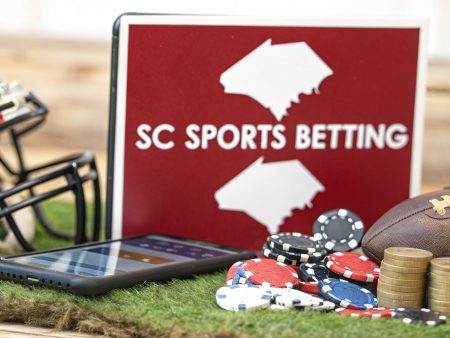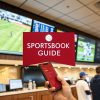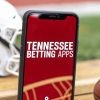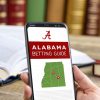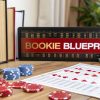If you've ever stared at a betting board and felt like you were trying to read a foreign language, you're not alone. Getting a handle on sports betting lingo is the first real step any bettor takes to move from just guessing to making smart, strategic wagers. You have to know what terms like ‘juice,’ ‘moneyline,’ and ‘point spread’ actually mean if you want to manage your bankroll and spot real value at top offshore sportsbooks.
Why Understanding Sports Betting Lingo Matters
Think of this guide as your personal translator for the entire world of sports betting. Learning the jargon isn't about sounding like you know what you're doing—it's about actually making smarter financial decisions. When you can confidently read the lines and understand all the different bet types on sites like MyBookie or BetOnline, you're giving yourself the power to find the absolute best value for every dollar you risk.
This reference is built to be the only resource you'll need. It will help you break down everything from the most basic betting terms to the kind of complex slang you hear from sharp, professional bettors. Our goal is to make sure you place every single bet with a crystal-clear understanding of both the risks and the potential rewards.
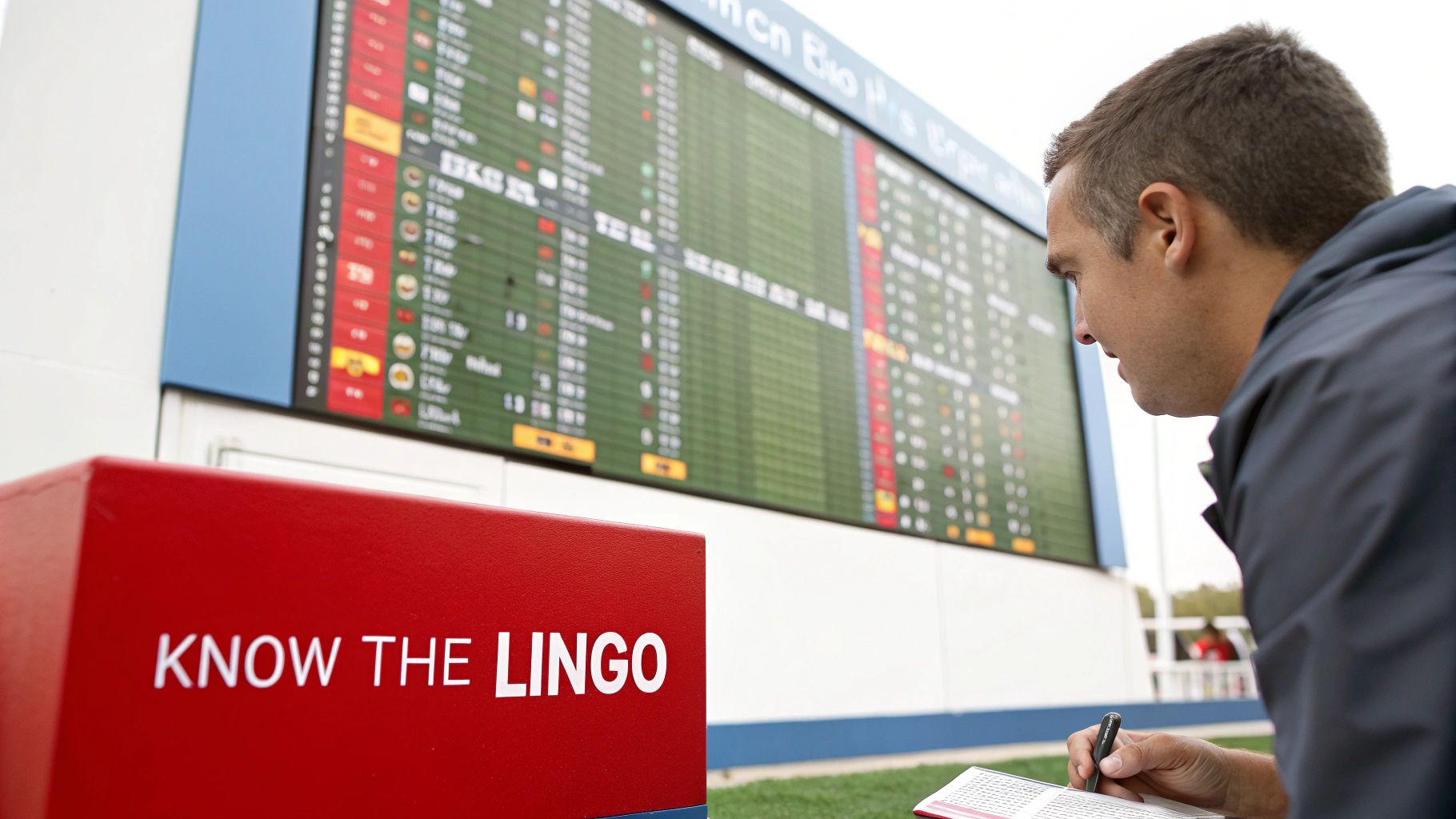
The sports betting market is absolutely exploding. The global market was valued at around USD 100.9 billion and is on track to nearly double, hitting a projected USD 187.39 billion by 2030. This massive growth is fueled by better internet access and everyone having a sportsbook in their pocket, making platforms like Bovada, BetUS, and Sportsbetting.ag easier to use than ever. You can discover more insights on the global sports betting market growth to see why learning the language of betting is more critical now than ever before.
Here’s exactly why building your betting vocabulary is so important:
- Spotting Value: You’ll be able to identify favorable odds that amateur bettors completely miss.
- Managing Risk: Understanding concepts like 'hedging' is key to protecting your bankroll from big losses.
- Exploring More Bets: It opens the door to move beyond simple wagers into more advanced (and potentially profitable) bets like parlays and teasers.
The Foundational Betting Glossary
If you want to find an edge and bet with confidence, you first have to speak the language. This section is your foundation, breaking down the essential sports betting lingo you'll see on every bet slip, from established sites like Sportsbetting.ag to newer players like Xbet.
Getting these core concepts down is the first real step toward placing smarter bets and, just as importantly, managing your money the right way.
Action, Wager, and Stake
At its simplest, Action just means you have a bet on a game. If you have "action" on the Sunday night game, it means you've got money riding on the outcome. For a bet to officially have action, the sportsbook has to accept it, and the game has to go on as scheduled.
A Wager is just another word for a bet. Think of it as the formal agreement between you and a sportsbook, like Cosmobet, on what's going to happen in an event.
Your Stake is simply the amount of money you're putting on the line for that wager. If you bet $50 on the Dallas Cowboys to win, your stake is $50.
Juice: The Sportsbook's Cut
You'll constantly hear the terms Juice or Vigorish (Vig) thrown around—they mean the exact same thing. This is the commission the sportsbook takes for accepting your bet. It’s their built-in profit margin, the clever bit of math that ensures they make money no matter who wins or loses.
The classic example of juice is on point spreads and totals. Instead of giving you even money (+100) on both sides, sportsbooks like BetOnline will almost always set the odds at -110. That extra 10% is the juice.
For a typical NFL game at Sportsbetting.ag, you'll see something like this:
- Green Bay Packers -7.5 (-110)
- Chicago Bears +7.5 (-110)
To win $100 on either side of that bet, you have to risk $110. The extra $10 is what the house collects. This small fee is fundamental to how sportsbooks stay in business and is a critical piece of the lingo to wrap your head around.
Bankroll and Odds
Your Bankroll is the total pot of money you've specifically set aside for betting. Honestly, learning to manage your bankroll is probably the single most important skill for long-term success. It's what helps you ride out the inevitable cold streaks and bet responsibly. A smart rule of thumb is to never stake more than 1-5% of your entire bankroll on any single bet.
Finally, we have Odds. Odds are the heart of every bet, representing the implied probability of an outcome and telling you exactly what your payout will be. To go from a casual bettor to a sharp one, you absolutely have to know how to read the different formats. We've got a whole guide on how to read sports betting odds that dives deep into American, decimal, and fractional styles.
Once you understand odds, you can properly calculate risk and spot true value on platforms like Bookmaker.eu and Bet105.
Once you've got the basic lingo down, it's time to dig into the fun stuff: the different ways you can actually place a bet. Understanding the variety of wagers available at offshore sportsbooks is a game-changer for building a solid strategy. Each bet type has its own rules, risks, and rewards, making it a critical piece of sports betting lingo to get a handle on.
Moving past simple win/loss predictions is where the real strategic action begins. From a straightforward Moneyline to a high-risk, high-reward Parlay, knowing your options helps you hunt for the best value in any given game. This is how you start to fine-tune your approach from casual betting to sharp wagering.
But before we jump into the specific bets, this visual guide nails the three core parts of any wager: your Stake (what you risk), the Wager itself (the type of bet), and your Bankroll (your total betting funds).
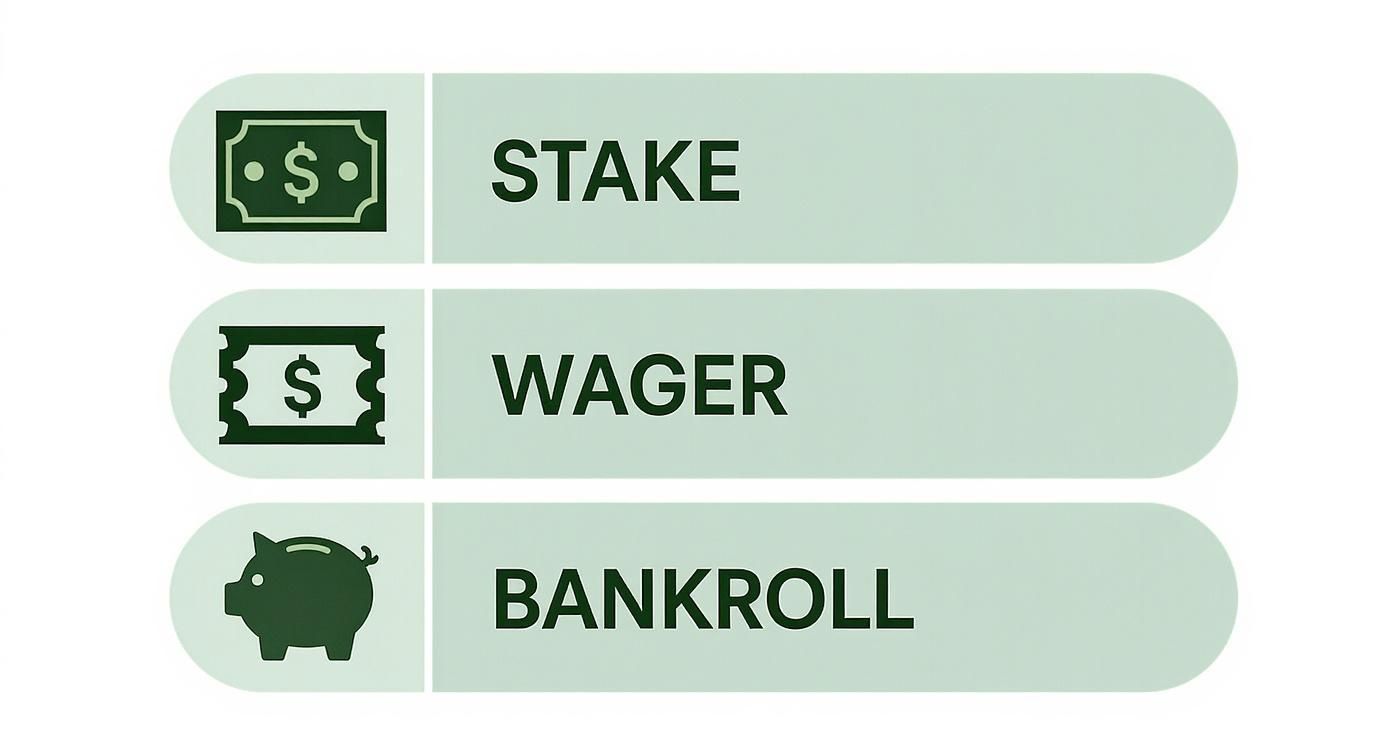
This graphic is a great reminder of the three pillars of betting. It's crucial to always think about how each wager fits into your bigger picture and your bankroll management plan.
Moneyline, Point Spread, and Totals
These three are the bread and butter of sports betting. You'll see them on pretty much every game, and they form the foundation of most betting slips you'll ever create.
-
Moneyline: The simplest bet you can make. You're just picking who wins the game, straight up. For example, over on MyBookie, you might see the Los Angeles Lakers at -150 (the favorite) playing the Boston Celtics at +130 (the underdog). A $150 bet on the Lakers pays out $100, while a $100 bet on the Celtics would win you $130.
-
Point Spread: This is all about leveling the playing field. The sportsbook gives the underdog a "head start" with a certain number of points. At a site like BetUS, a football game could have the Kansas City Chiefs as -7 point favorites against the Denver Broncos. For a bet on the Chiefs to cash, they have to win by more than 7 points. If you bet on the Broncos, you win if they win the game outright or lose by less than 7 points.
-
Totals (Over/Under): With a totals bet, you're not picking a winner at all. Instead, you're betting on the combined final score of both teams. A sportsbook like BetOnline sets a number, and you just have to decide if the final score will be over or under that mark.
To make things even clearer, here's a quick reference table breaking down these common wagers.
Quick Guide to Common Bet Types
This table summarizes the most popular wager types, what they mean, and a typical sports example.
| Bet Type (Lingo) | Core Concept | Example |
|---|---|---|
| Moneyline | Picking the outright winner. | Betting on the Yankees to beat the Red Sox. No strings attached. |
| Point Spread | Betting on the margin of victory. | Taking the Cowboys at -3.5 means they must win by 4 or more points. |
| Totals (Over/Under) | Betting on the combined score of both teams. | Wagering "Over 48.5" in a Chiefs vs. Bills game. |
| Parlay | Combining multiple bets into one for a bigger payout. | Betting on the Lakers, Knicks, and Bulls all to win on the same ticket. |
| Prop Bet | Betting on a specific in-game event or player stat. | Wagering on Patrick Mahomes to throw for over 2.5 touchdowns. |
Having this handy can help you quickly decipher the betting board when you're looking for your next play.
Ready to move beyond the basics? These bets can offer much bigger payouts but also come with a higher degree of difficulty. They involve combining outcomes or focusing on very specific in-game events.
A Parlay is when you roll two or more individual bets into a single wager. The catch? Every single one of your picks (often called "legs") has to hit for the parlay to win. The odds can get massive, but so does the difficulty with each leg you add. For anyone looking to swing for the fences, it pays to explore different parlay betting strategies to learn how to construct them smartly.
Next up is a Teaser, which is a special kind of parlay. It lets you adjust the point spreads or totals in your favor, but in exchange, you get a smaller payout. This is a really popular choice at sportsbooks like Bovada and Bookmaker.eu, especially in football and basketball, because it gives you a much better safety net for your picks.
Finally, we have the Prop Bet, short for proposition bet. This is a wager on a specific player performance or an event within a game that isn't always tied to the final score. You could bet on a quarterback's total passing yards on Xbet or which team will score first over on BUSR. Props are where you can really get creative.
Advanced Strategies and Professional Jargon
Once you've got the basics down, it's time to start thinking like a pro. This means moving beyond just picking winners and losers and digging into the strategies that seasoned bettors use to protect their bankroll and find an edge. Sharps who frequent sites like Bookmaker.eu and BUSR aren't just gambling; they're looking for ways to limit their risk and capitalize on tiny inefficiencies in the market.
Learning this lingo is what separates the casual fan from the calculated bettor. These aren't just fancy terms—they're real, actionable strategies that can help you lock in profits.
Protecting Profits and Mitigating Risk
One of the first things any serious bettor learns is how to Hedge. Think of it as an insurance policy for your bet. Hedging is when you place a bet on the opposite side of your original wager, either to guarantee a profit or to cut your potential losses.
Let's say you put down a Futures bet on the Kansas City Chiefs to win the Super Bowl at +800 odds on Bookmaker.eu way back in August. Fast forward to February, and they're in the big game. Instead of letting it all ride, you could hedge by betting on their opponent's moneyline. This guarantees you'll walk away with a profit no matter which team hoists the trophy. It’s a classic move for a reason.
Exploiting Market Inefficiencies
Another key pro strategy is Arbitrage Betting, or "arbing" for short. This is where you hunt for differences in odds across multiple sportsbooks and bet on every possible outcome to lock in a small, risk-free profit. For example, you might see slightly different moneyline odds for the same game on BetOnline and Bovada. By betting both sides correctly, you guarantee yourself a win.
Arbitrage opportunities don't last long and you have to be quick, but they perfectly illustrate how pros treat betting like a financial market to be analyzed, not just a game to be predicted.
This sharp, analytical approach is booming worldwide. The Asia-Pacific (APAC) region has exploded into the world's biggest sports betting market, responsible for about 47% of all global wagers. This massive growth is fueled by over four billion people with more spending money and better internet access, giving more and more bettors the tools to find and jump on market inefficiencies. You can read the full analysis of the global betting market to get a better sense of these trends.
Understanding Conditional Wagers
Finally, let's get into some of the more complex bet types that link multiple wagers together, like If Bets and Reverse Bets.
-
If Bet: This is a sequence of two separate bets where the second one only becomes active if the first one wins. You could bet on the Lakers, and if they win, your stake automatically gets placed on the Warriors in their game later that night.
-
Reverse Bet: This is basically just two If Bets running in opposite directions. It's a way to protect your stake in case your first pick loses but your second one comes through.
You'll find these more intricate betting options at sportsbooks like MyBookie and Xbet. They give you a much deeper level of strategic control over how your bets are connected, which is a hallmark of advanced, professional-level thinking.
Reading Betting Lines Like an Expert
The betting line tells a story, and if you don't know the language, you're just guessing. Learning to read the line is the first real step you take from being a casual fan to a calculated bettor. Getting a handle on the lingo around odds and spreads isn't just a good idea—it's non-negotiable if you're serious about this.
First things first, you've got to master the different odds formats. Offshore sportsbooks like Xbet and Bet105 will show you numbers in a few key ways. You need to be fluent in all of them to hunt down the best value.
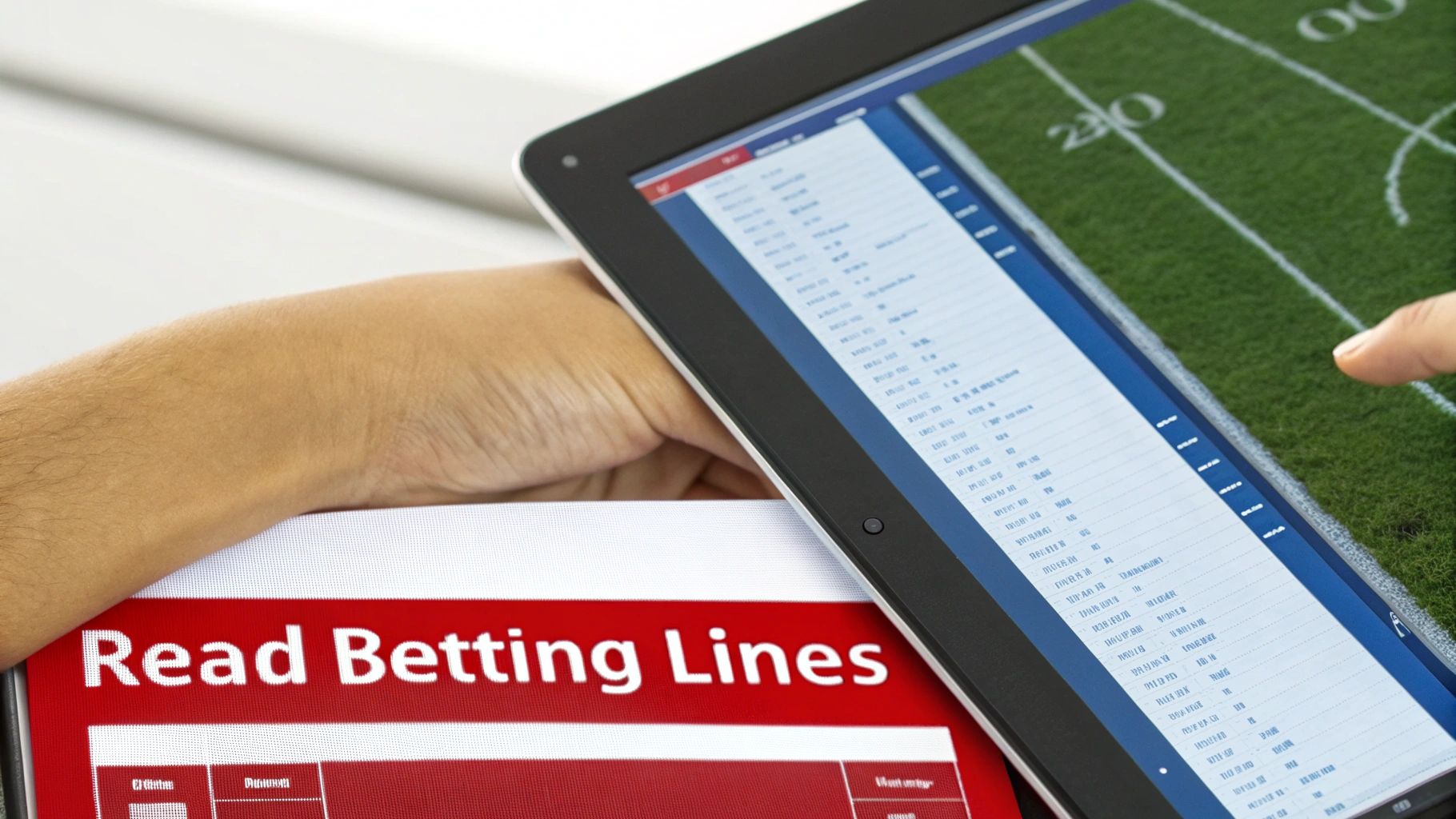
American, Decimal, and Fractional Odds Explained
These are the three main ways books communicate payouts and implied probability. They all say the same thing, just in a different dialect. Knowing how to translate between them is a fundamental part of sports betting lingo.
-
American Odds: This is what you'll see almost everywhere at offshore sites like MyBookie and BetUS. It’s all about the plus (+) for underdogs and the minus (-) for favorites. A -150 favorite means you have to lay down $150 to win $100. See a +130 underdog? That means a $100 risk pays out $130 in profit. Simple.
-
Decimal Odds: You’ll see these more in Europe and Canada, but they're arguably the easiest to understand. The number shows your total return (your original stake plus your profit) for every $1 you bet. If the odds are 2.50, a $100 bet gets you $250 back—which is your $100 stake plus $150 in winnings.
-
Fractional Odds: The classic UK format. The fraction shows your potential profit against your stake. Odds of 3/2 (you'd say "three-to-two") mean you'll win $3 for every $2 you bet. So, a $100 bet at 3/2 nets you a cool $150 profit.
If you want to really get this down cold, our complete guide on how to read betting lines breaks it all down.
Decoding Line Movement and Key Terms
Beyond the odds format, you have to speak the language of the line itself. The Hook is a classic term you'll hear a lot. It’s that half-point (.5) you see on a point spread, like -7.5. That half-point is there specifically to kill the possibility of a push (a tie). Winning or losing "by the hook" is one of the most gut-wrenching feelings in sports betting.
Then there's the Vigorish (Vig), which most people just call the "juice." This is simply the commission the sportsbook bakes into the line. It's the reason you see odds of -110 on both sides of a spread instead of an even +100. That's how the house guarantees its edge.
One of the most critical things to watch for is a "steam move." This is when a sudden avalanche of money—usually from sharp, respected bettors—pours in on one side, forcing the sportsbook to shift the line in a hurry. If you see a steam move happening at a sharp book like Bookmaker.eu, pay attention. It's a huge signal telling you what the pros are thinking.
Insider Slang and Common Betting Nicknames
If you really want to talk the talk in sports betting, you’ve got to know the slang. Think of it as the shorthand that seasoned bettors use on forums and in group chats. It's what separates the rookies from the regulars at offshore sportsbooks like MyBookie or BetUS.
Learning these nicknames isn't just about memorizing definitions; it’s about getting a feel for the culture. It's the difference between just following the conversation and actually being a part of it.
From Chalk to Bad Beats
Let's jump into some of the most common terms you'll hear. These words describe everything from the basics of a bet to the gut-wrenching moments every bettor eventually experiences. You'll see these tossed around everywhere, from Bovada to BetAnything.
- Chalk: This is just another word for the favorite. When you hear someone say they're "betting the chalk," it means they're putting their money on the team everyone expects to win.
- Dog: The opposite of chalk, the "dog" is the underdog. If you're "taking the dog," you're betting on the longshot, usually because the potential payout is a lot more attractive.
- Puck Line: This is hockey's take on the point spread. Since hockey games are typically low-scoring, the puck line is almost always set at -1.5 for the favorite and +1.5 for the underdog.
- Dime: In betting circles, a "dime" is a $1,000 wager. Following that logic, a "nickel" is a $500 bet.
- Bad Beat: Every bettor has a story about this one. A bad beat is that soul-crushing moment when you have a win in the bag, only for some fluke, last-second play to flip the result and make you lose.
For instance, a frustrated bettor might say, "I had my parlay locked up at Sportsbetting.ag, but a garbage-time touchdown in the final seconds gave me a brutal bad beat."
With sports betting blowing up across the United States since 2018, this kind of lingo is more common than ever. The global online betting market is on a tear, projected to jump from $49.96 billion to $67.17 billion by 2027, thanks to the popularity of platforms like Xbet and BetOnline. You can discover more insights about sports betting's global expansion to see just how big this world is getting—and why knowing the language is a must.
Common Questions About Betting Lingo
Even with a good grasp of the basics, a few specific betting terms always seem to trip people up. Let's clear the air on some of the most common questions I hear, so you can feel totally confident when you're placing bets at your favorite offshore sportsbooks.
Think of this as the rapid-fire round to hammer home your new vocab.
What Is the Difference Between Juice and Vigorish?
There isn't one! ‘Juice’ and ‘vigorish’ (or just ‘vig’) are two sides of the same coin. They’re just different slang terms for the commission the sportsbook, whether it's Bovada or BetAnything, bakes into a bet. This is how they guarantee a profit.
You’ll see it everywhere, but it's most obvious on point spreads and totals. Instead of getting even money (+100) on either side, you usually see -110. That extra 10% is the house's cut.
What Does Buying Points Mean in Sports Betting?
Buying points is exactly what it sounds like: you pay a little extra to move a point spread or total in your favor. Of course, there's no free lunch—in exchange for that better number, you have to accept worse odds (meaning, you pay more juice).
Let's say a football team is a -3.5 point favorite at -110 odds. You could "buy a half-point" to get them at -3, a huge advantage that covers a field goal win. The catch? Your odds might shift to something like -125. Many of the best offshore sportsbooks, like BUSR, make this easy to do right on your bet slip.
Can You Explain What a Push Means?
A push is just a fancy word for a tie. It happens when the final score lands exactly on the point spread or total you bet on, and neither you nor the sportsbook wins.
For example, if you bet on a team at -7 and they win by exactly seven points, that's a push. When this happens, your original stake is simply refunded to your account. If a push happens in a parlay at a site like MyBookie, that leg of the bet is just voided. The parlay stays alive, but it's now a smaller parlay with a recalculated payout.
A push is a neutral outcome—you don't win any money, but you don't lose your stake either. It's a key piece of sports betting lingo that every bettor needs to understand.
What Is a Sharp Bettor?
A ‘sharp’ is a professional bettor who makes a living by being smarter and faster than the sportsbooks. These aren't casual fans; they are analytical pros who consistently win over the long haul. Sharps are so respected that a wave of their money on one side can force a sportsbook to move the line, which is known as a ‘steam move.’
They live and breathe finding value and exploiting lines they think are wrong. The average person betting on their favorite team for fun is the opposite of a sharp—we call them a ‘square’ or the ‘public.’
At USASportsbookList, our whole game is giving you the most detailed reviews and guides to master the world of sports betting. Check out our hand-picked list of the best offshore sportsbooks and grab an exclusive bonus to get started. Visit us at https://usasportsbooklist.com and start betting smarter today.


